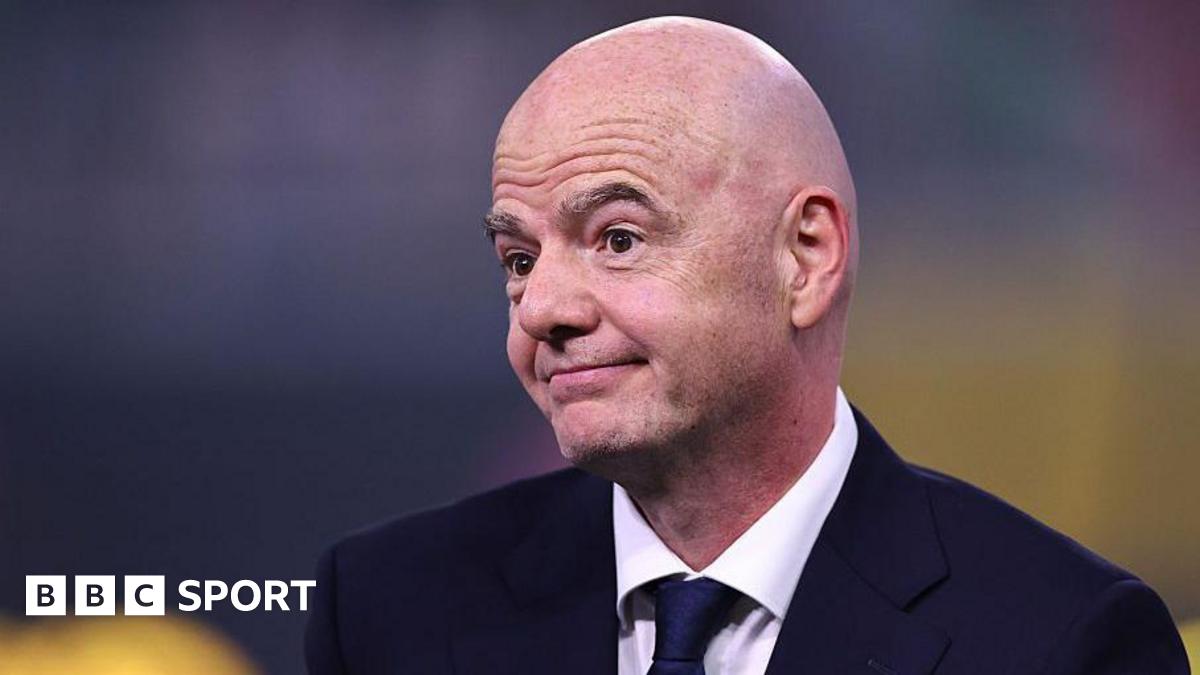Fifa hailing of Club World Cup 'a fiction' says player union

Fifpro Condemns FIFA's Club World Cup, Citing Player Welfare Concerns
The global players' union, Fifpro, has launched a stinging attack on FIFA and its president Gianni Infantino, accusing the governing body of prioritizing revenue over player welfare in its revamped Club World Cup format. Sergio Marchi, Fifpro's president, described FIFA's portrayal of the tournament as a "fiction," highlighting concerns about player workload, inadequate rest periods, and the extreme conditions under which the competition was held.
Union Claims Player Welfare Ignored
The criticism follows the conclusion of the expanded Club World Cup, which featured more teams and matches than previous editions. Fifpro argues that the increased demands placed on players are unsustainable and pose a significant risk to their physical and mental health. The union claims it was excluded from a crucial meeting on player welfare convened by Infantino prior to the Club World Cup final, further fueling its discontent.
Marchi's statement evokes historical parallels, comparing Infantino's leadership to that of Roman emperor Nero, suggesting FIFA is providing "bread and circuses" to distract from underlying issues of inequality and lack of player protection. This strong language underscores the depth of the rift between Fifpro and FIFA regarding the direction of global football.
FIFA Defends Tournament's Success
FIFA has defended the Club World Cup, with Infantino previously labeling it "the most successful club competition in the world" and declaring a "golden era of global club football" had begun. The governing body insists that all revenues generated from the tournament will be redistributed to clubs, both participating and non-participating, to support the development of the game. FIFA also points to the agreement reached with player unions regarding minimum rest periods between matches and at the end of each season.
However, Fifpro contends that the agreed-upon 21-day rest period at the end of each season falls short of the union's recommendation of 28 days. Concerns also remain about the extreme heat faced by players during the tournament, with Fifpro demanding greater flexibility in kick-off times and protocols.
Expert Analysis: Balancing Commercial Interests with Player Health
Dr. Emma Riley, a sports medicine consultant specializing in football, emphasizes the importance of balancing the commercial interests of the game with the well-being of players. "The expanded Club World Cup undoubtedly brings increased revenue for FIFA and participating clubs," she notes. "However, the relentless fixture schedule is taking a toll on players. We are seeing a rise in injuries and burnout, which ultimately diminishes the quality of the game and shortens careers. A collaborative approach involving FIFA, player unions, and medical experts is crucial to finding a sustainable solution."
Historical Context: The Evolution of Club Competitions
The debate surrounding the Club World Cup reflects a broader tension within football regarding the expansion of club competitions. Historically, international club tournaments were relatively infrequent, but in recent decades, driven by commercial interests and globalization, they have become increasingly prevalent. This expansion has led to concerns about fixture congestion, player fatigue, and the potential erosion of domestic leagues.
The Intercontinental Cup, a predecessor to the Club World Cup, pitted the champions of Europe and South America against each other in a one-off final. The Club World Cup, in its various iterations, has evolved to include more teams from different continents, aiming to crown a true global club champion. However, the expansion has come at a cost, with critics arguing that it further exacerbates the pressure on already overburdened players.
Looking Ahead: Implications for the 2026 World Cup
Fifpro has warned that the issues encountered during the Club World Cup must not be repeated at the 2026 World Cup, which will be co-hosted by the United States, Canada, and Mexico. The union has called for a more collaborative and player-centric approach to tournament planning, emphasizing the need for adequate rest periods, flexible scheduling, and robust protocols to protect players from extreme weather conditions.
Professor John Carter, a sports business analyst, believes that FIFA faces a significant challenge in balancing its commercial ambitions with the growing concerns about player welfare. "FIFA needs to demonstrate a genuine commitment to prioritizing player health," he states. "Failure to do so could lead to further legal challenges and reputational damage. The future of the game depends on finding a sustainable model that protects its most valuable asset: the players."
FIFA has been approached for comment regarding Fifpro's latest statement but has yet to respond. The ongoing dispute highlights the complex and often contentious relationship between football's governing bodies and the players they rely on to generate billions in revenue.
Originally sourced from: BBC Sport Football
